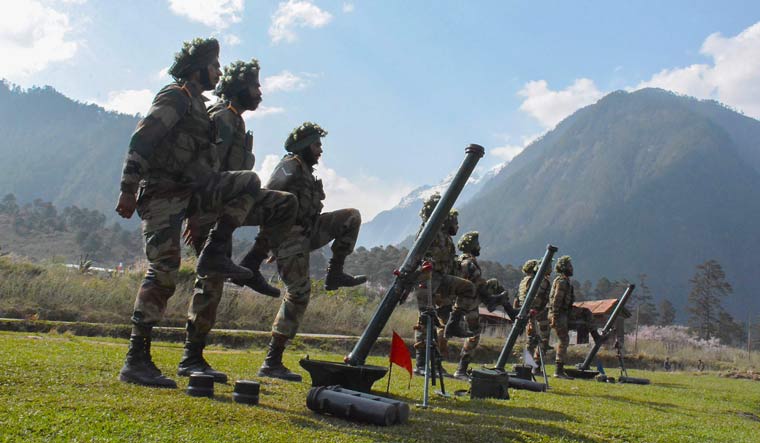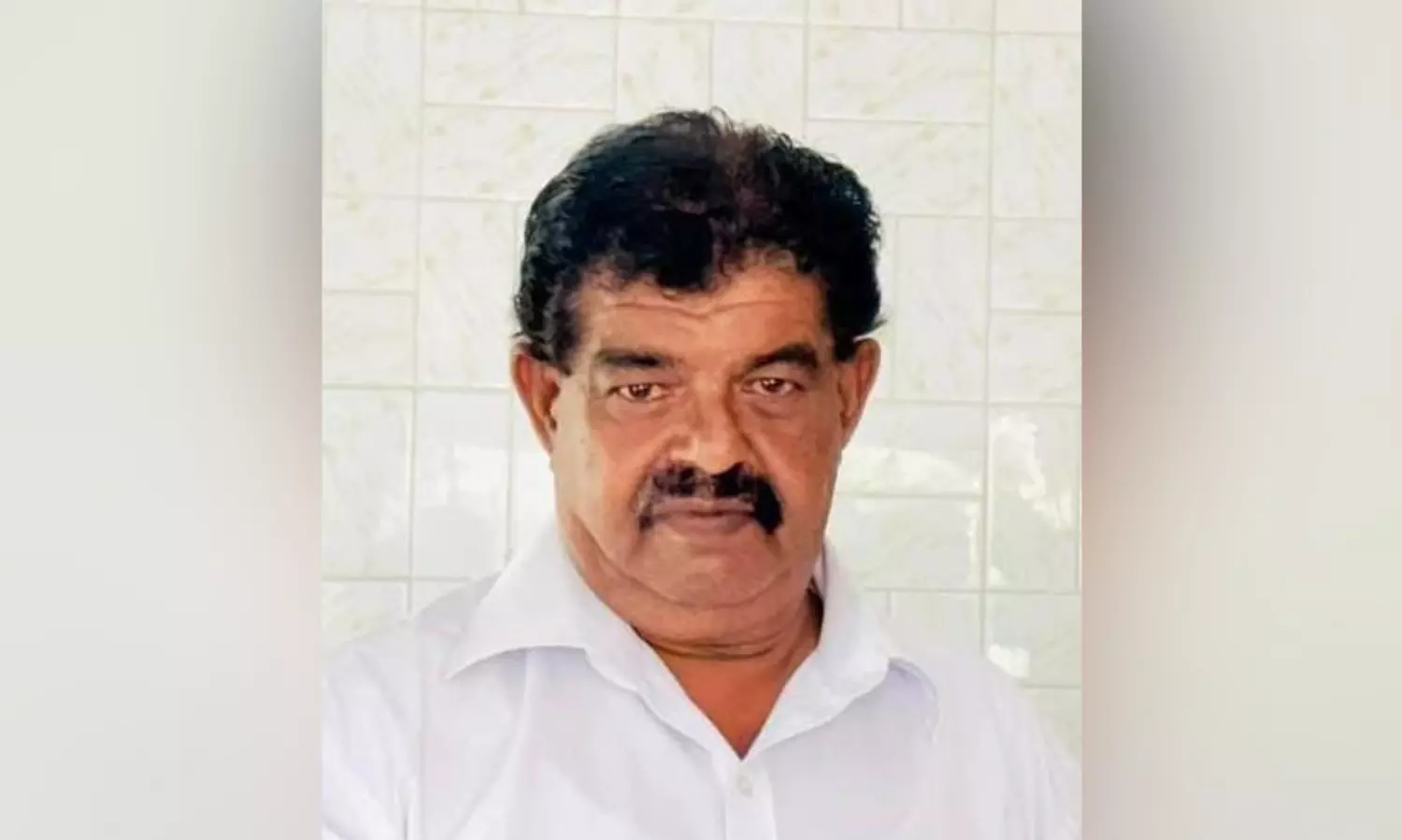The Taktsang residential school is located on an elevated platform surrounded by mountain ranges, barely 8 kilometres from the Bum La pass, the line of actual control (LAC) between India and China.
As evening descends early in Taktsang, the last Indian village along the Indo-China border in Tawang of Arunachal Pradesh, a group of 50 students of a government residential school and their warden prepare for another long and cold night.
At 13,000 feet above sea level, Taktsang sees temperatures dropping to minus 15 degree at night.
To tide over the cold this time, the school has sought firewood from parents to keep dormitories warm.
The Taktsang residential school, a two-storey building, is located on an elevated platform, surrounded by mountain ranges, barely 8 kilometres from the Bum La pass, line of actual control (LAC) between India and China, which saw a bloodied war in 1962.
The Taktsang school runs under Sarva Shiksha Abhiyan (SSA) of the Union government and has 50 children enrolled from the village from Class 1 to 8. They are provided schooling, meals and lodging by the school
.
According to Warden Degin Dorjee (48), spending the night is the most difficult part, as he rearranges stacks of wood which would be used on the evening to keep the children’s dormitories warm. The wooden walls of the dormitory provide natural insulation, yet the wind whistles its way through the cracks.
Dorjee enters the boys’ dormitory to take a roll call. Within seconds, students climb down from double-decker bunk beds. The dormitory feels damp and cold as the metal fireplace situated in the corner is still empty.
“I am taking an evening roll call now as their play session gets over by 4 pm. We need wood every night to heat the rooms enough for 12 hours for the kids to pass the night. Sometimes, pipelines in the village burst after water freezes inside them so we keep boiling water in large pots for the students to use,” said Dorjee.
According to Warden Degin Dorjee (48), spending the night is the most difficult part, as he rearranges stacks of wood which would be used on the evening to keep the children’s dormitories warm. The wooden walls of the dormitory provide natural insulation, yet the wind whistles its way through the cracks.
As the warden heads out towards the classrooms in the adjacent school building for inspection, a few teachers step out of their quarters to discuss matters at hand. There are six teachers, including two part-timers, at the school which was established in 2006 and upgraded to residential school in 2014.
The Covid lockdown has been a setback as teachers find it difficult to make students cope.
“The pace of learning has dropped after the lockdown. We also have a few students from shepherd families who had gone away to the mountains. We are still trying to bring them upto the mark,” Lama Zangmu (31), a Math and Science teacher who takes classes for grades six to eight, says.
While education remains a priority, there are also other pressing issues for the school management, such as ensuring that the students get regular meals every day. A handwritten note on the notice board announces the mid-day meal menu of that day — rice, pulses and vegetables.
The discussion of the evening among the warden and teachers is the upcoming parents teachers meeting (PTM).
“We get a stipend of Rs 1,600 a day for the children, which is majorly spent on food, books and stationery. This time, we have decided to ask parents to donate firewood in the parents teachers meeting.
That way, parents of Taktsang can assist the school that educates their children. Purchasing huge stacks of wood is expensive,” says Dorjee. He claims that the request was also made in the last PTM held a month ago, but this time, the proposal will be placed on priority.
As per the information department of the Tawang administration, the Taktsang residential school has received a sanctioned grant of over Rs 27 lakh from 2006 to 2014, which has been used for multiple buildings of classrooms and hostels.
The residents of Taktsang are from the Monpa tribe of the state. Despite the modern-day necessities of a currency-based society, barter system is still considered a courtesy practice among the tribes in Arunachal Pradesh.
Taktsang, which literally translates to “tiger’s den”, is a fairly newly settled village ,embedded in the mountain ranges of Tawang district. It was first registered for census in 2011 and as per official records, there are over a 100 households with over 500 residents. It is situated barely 100 metres from the Buddhist Monastery Taktsang Gonpa, which is also one of the holy sites in Tawang.
The men and women of Taktsang are employed as construction workers with BRO (Border Roads Organisation), a road construction executive force that works as part of the Indian Army. They leave for work in tractor trolleys as early as 6 am and return by sunset, leaving behind their kids in school.
“I have been living in the village for the past 15 years and I earn Rs 15,000 a month as part of the BRO. We get our food ration from the labour organisation leader who brings it from Tawang in their vehicle. I have two girls who are both currently enrolled in senior secondary at Navoday Vidyalaya in Tawang. They had earlier studied at the village school,” said Woku Drema (35), a resident of Taktsang.
Long hours of power cut in Taktsang is a routine affair. Carma, 19, who is a young mother carrying her baby on her back, says her family is dependent on firewood.
“We had to switch from heaters to wood. Every house in Taktsang has huge piles of firewood stored,” says Carma.
As the school awaits its next PTM, warden Dorjee hopes to rely on the Monpa tradition of goodwill barter as his school awaits its next stock of firewood.
************************************************************************
Readers











